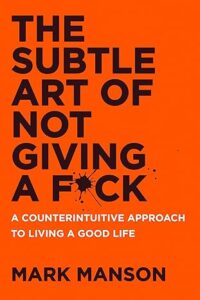Canada wildfires are affecting the air quality in my area. The National Weather Service wrote, “acceptable; however, the air quality may pose a moderate health concern for a very small number of individuals.”
Strange statement, considering three out of four of my closest friends feel like they have a sinus infection or head cold. I wouldn’t classify 75% as a “very small number of individuals.” Also, who writes for the National Weather Service? Can’t be a professional writer, or “very small” wouldn’t be the term they used.
Substitutes for “very small”
- Tiny
- Minuscule
- Minute
- Few
- Diminutive
- Limited
- Trifling
- Teensy-weensy
- Slight
The subject of fluff arose last week while I was reading a brand new writer’s partial manuscript, including a prologue that was all backstory—important for her to know but irrelevant to the reader.
Rather than teach her how to tighten her writing, I focused on scene structure and techniques to force her characters to do something, anything. After several pages of notes, the fluff conversation could wait. The last thing I wanted was to obliterate a young writer’s dreams. Instead, I gave her a gentle nudge in the right direction.
For those farther along in their journey or career, recognizing fluff is an important subject. Those pesky buggers that sneak into first drafts and weaken our writing are better known as filler words and phrases aka fluff or flab.
If a filler word serves a purpose, such as to enhance characterization in dialogue, keep it. The objective is to tighten the writing by eliminating unnecessary words or phrases that might distract the reader.
Filler/Fluff/Flab Words
Just
Just should almost always be deleted.
Original: I just couldn’t bear to say goodbye.
Rewrite: I couldn’t bear to say goodbye.
That
That litters many first drafts, but it can often be deleted without any harm to the original sentence.
Original: I believe that all writers should kill their darlings.
Rewrite: All writers should kill their darlings.
The original sentence has another problem. Did you catch it? Believe in this context is a telling word. Any time we tell the reader things like “I thought” or “He knew” or “She felt” or “I believe,” we slip out of deep POV. Thus, the little darling must die, as I did in the rewrite.
So
Original: So, this huge guy glared at me in the coffee line.
Rewrite: This musclebound, no-necked guy glared at me in the coffee line.
Confession: I use “so” all the time IRL. It’s also one of the (many) writing tics I search for in my work. The only exception to eliminating this, or any other, filler word is if it’s used with purpose, like as a character cue word.
Really
Original: She broke up with him. He still really loves her.
Sometimes removing filler means combining or rewording sentences.
Rewrite: When she severed their relationship, his heart weakened.
Very
We’ve established where the National Weather Service went wrong with very, but I’ll include it anyway.
Original: He made me very happy.
Rewrite: When he neared, my skin tingled.
Of
To determine if “of” is necessary read the sentence with and without it. Makes sense without it? Delete. Doesn’t? Keep it.
Original: She bolted out of the door.
Rewrite: She bolted out the door.
Up (following an action)
Original: He stood up tall.
Rewrite: He stood tall.
Down (following an action)
Original: He sat down on the sofa.
Rewrite: He sat on the sofa.
Want(ed)
Want/wanted are telling words. Rewrite to preserve deep POV.
Original: I really wanted the chocolate cake.
Substitute with a strong verb, such as: I drooled over the chocolate cake. One bite. What could it hurt?
Came/Went
Both are filler words because they’re not specific enough.
Original: I went to the store to buy my favorite ice cream.
Rewrite: I raced to Marco’s General Store to feed my craving for coffee ice cream.
Had
Too many had words give the impression the action took place prior to the main storyline. If it is used in a flashback, one had in the opening sentence signals the beginning, one at the end closes the scene. But if it’s clear the action occurred in the past, had can often be omitted.
Original: I had gazed at the painting for hours, waiting for the eyes to move.
Rewrite: For hours, I gazed at the painting. The eyes never moved.
Well (to start a sentence)
Original: Well, the homecoming queen attended the dance without the homecoming king.
Rewrite: The homecoming queen attended the dance, stag.
Literally/Basically
Original: I basically had to drag her out of the bar by her hair.
Rewrite: I dragged her out of the bar by her hair.
Original: I literally laundered money today. Still plucking bills from the lint filter.
Rewrite: I laundered money today. Still plucking bills from the lint filter.
Actually
Original: Actually, I did mind.
Rewrite: I minded.
Highly
Original: She was highly annoyed by his presence.
Rewrite: His presence infuriated her.
Totally
Original: I totally didn’t understand a word.
Rewrite: Huh? *kidding* I didn’t understand a word. Was that English?
And any other -ly adverb. Can you substitute with a strong verb or noun instead?
Anyway (to start a sentence)
Original: Anyway, I hope you laughed, loved, and lazed on your summer vacation.
Rewrite: I hope you laughed, loved, and lazed on your summer vacation.
Fluff Phrases
Most of these phrases should be omitted. If used for a purpose, like to enhance characterization with a catch phrase, feel free to keep it. Otherwise, delete. It’s even more important to eliminate fluff if you’re still developing your voice.
A bit
Original: The movie was a bit intense. Lots of blood.
Rewrite: Intense movie. Blood galore.
There is no doubt that
Original: There is no doubt that football season begins in the fall.
Rewrite: Football season begins in the fall.
The reason is that
Original: The reason is that I said you can’t go.
Rewrite: Because I said so, that’s why (shout-out to moms everywhere!).
The question as to whether
Original: The question as to whether the moon will rise again is irrelevant.
Rewrite: Whether the moon will rise again is irrelevant.
Whether or not
Original: Whether or not you agree is not my problem.
Or worse: Whether you agree or not is not my problem.
Rewrite: Whether you agree is not my problem.
This is a topic that
Original: This is a topic that is close to my heart.
Rewrite: This topic is close to my heart.
In spite of the fact
Original: In spite of the fact that he said he loved you, he’s married.
Rewrite: Although he professed his love, he’s married.
Or: Despite that he claimed to love you, he’s married.
The fact that
Original: The fact that he has not succeeded means he cannot do the job.
Rewrite: His failure proves he cannot do the job.
In order to
Original: In order to pay bills online, you need internet access.
Rewrite: To pay bills online, you need internet access.
At the end of the day
Original: At the end of the day, we’re all human.
Rewrite: We’re human. Fallible.
Not gonna lie
This phrase irritates me, is overused by the younger crowd, and only raises questions.
- Why would you lie? We’re having a friendly conversation.
- Never considered you’d lie, but now I’m suspicious.
Original: Not gonna lie, that chocolate cake almost killed me.
Rewrite: That chocolate cake almost killed me.
I’ve joined the crowd affected by air pollutants from the wildfires. Please bear with me today. Not feeling my best. But don’t let that stop you from adding filler words & phrases I missed.

 I stumbled across the subject of The Backwards Law by accident—a happy accident that led me to The Subtle Art of Not Giving a F*ck. Excellent book that I devoured in two sittings.
I stumbled across the subject of The Backwards Law by accident—a happy accident that led me to The Subtle Art of Not Giving a F*ck. Excellent book that I devoured in two sittings. Every character is the hero of their own story. Even the villain.
Every character is the hero of their own story. Even the villain.




 Coming Soon!
Coming Soon!

 When Dexter: Original Sin came out, I had my doubts. The ending of Dexter: New Blood left a bad taste in my mouth (I won’t spoil it for you).
When Dexter: Original Sin came out, I had my doubts. The ending of Dexter: New Blood left a bad taste in my mouth (I won’t spoil it for you).


 What about the food in the fridge: Has the milk soured, the produce wilted, or the meat spoiled?
What about the food in the fridge: Has the milk soured, the produce wilted, or the meat spoiled?



